Plasma Physics and Scientific Computing Blog
Our blog features regular articles on numerical methods for plasma and rarefied gas simulations, as well as general updates related to plasma propulsion and spacecraft contamination control. Subscribe to the newsletter to avoid missing any articles.
-
Filter by category:
- Apps
- Contamination
- Embedded Systems
- Field Solvers
- Interactive
- Mesh Generation
- News
- Numerical Methods
- Papers and Codes
- Plasma Simulation
- Starfish
- Surface Interactions
- Uncategorized
- Visualization
Starfish DSMC Tutorial: Supersonic Jet and Argon Diffusion
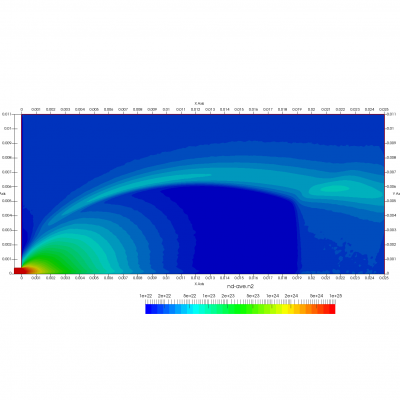
This tutorial shows you how setup a DSMC simulation using Starfish. We model expansion of an atmospheric pressure gas to a low pressure reservoir and also compute self-diffusion coefficient of argon. (Apr 14 2017)
Vorticity – Stream Function Formulation for Axisymmetric Flow
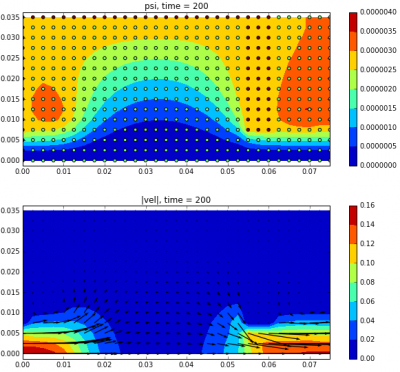
Vorticity - Stream Function formulation for incompressible Navier Stokes equation is developed and demonstrated with Python code for flow in a cylindrical cavity. More complex geometry from a Java code is also shown. (May 27 2016)
Fun with Raspberry Pi – plasma simulation code performance
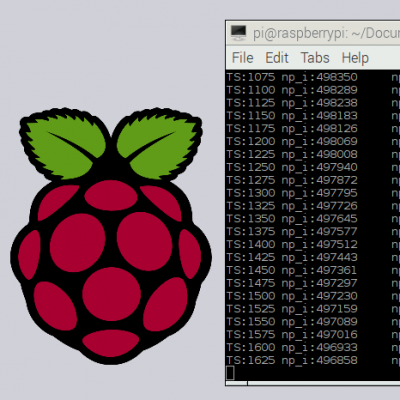
Raspberry Pi 3 Model B is a $40 credit card sized computer with 1.2GHz CPU and 1Gb of RAM. But before buying bunch of the boards to build a small MPI cluster, I wanted to see how the performance compares to a typical PC. (May 16 2016)
Free molecular flow in a cylindrical pipe – with multithreading
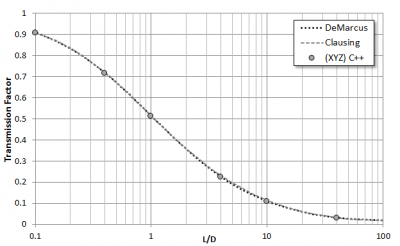
In this blog post we develop a multi-threaded C++ program for computing molecular transmission through a cylinder of a varying length. The results are compared against tabulated data of Clausing. (Mar 15 2016)
Brief Intro to GPU PIC with CUDA
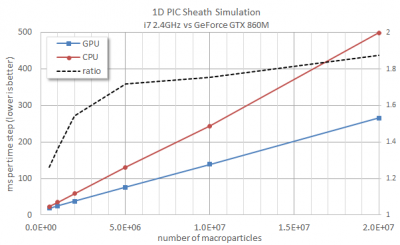
This post shows how to develop a PIC plasma simulation code that uses NVIDIA CUDA to perform computations on the graphics card (GPU). Even without any optimization, the GPU version runs almost twice as fast as the CPU version for a large number of particles. (Feb 25 2016)
3D Viewer
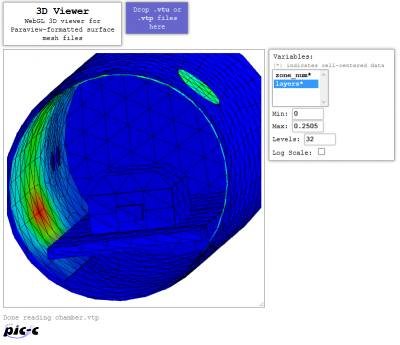
WebGL-based interactive 3D plotter for surface mesh files in Paraview's .vtu or .vtp formats (Feb 16 2016)
Particulate Contamination Transport on Orbiting Satellites
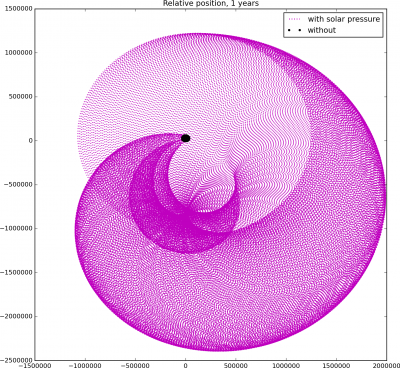
Particulates launched from an orbiting object may intersect the satellite on a future orbit and cause contamination of surfaces beyond the line of sight of the originating surface. This post describes a simply Python code that was developed to model this behavior with and without solar radiation pressure. (Jan 27 2016)
CTSP Molecular Contamination Modeling Validation
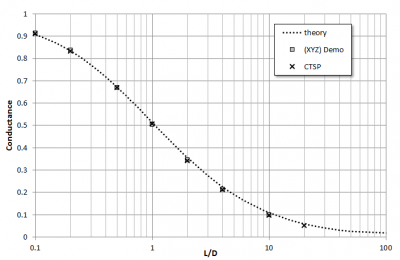
Summary of CTSP molecular contamination modeling validation effort to date (Dec 28 2015)
Finite Element Particle in Cell (FEM-PIC)
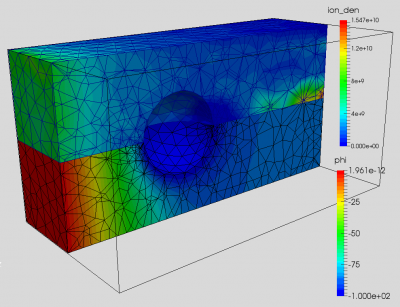
Example Finite Element Particle in Cell code for flow of ions past a charged sphere on an unstructured mesh (Dec 23 2015)
Advanced PIC Course Debrief
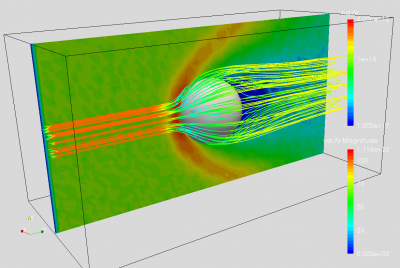
Some observations and lessons learned from the Advanced PIC course. Were you a student? I would love to get your feedback! (Nov 10 2015)
QCM Analyzer
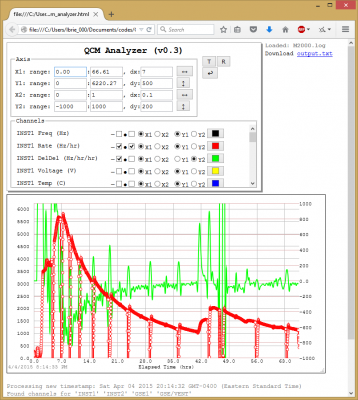
Interactive on-line analyzer of Quartz Crystal Microbalance (QCM) log files. The analyzer can visualize multiple channels, automatically compute smoothed delta-deltas, and lets you interactively analyze TGA data. (Nov 9 2015)
Detailed Surface Model
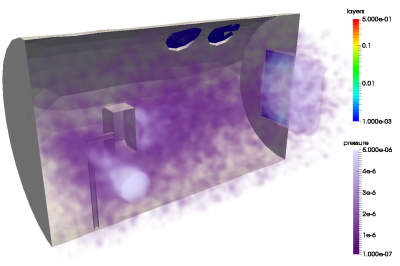
New detailed model was developed for the space-surface interface. Instead of using sticking coefficients, the model uses residence time to determine if a molecule "sticks". Adsorbed molecules are added to a surface layer and objects can also contain trapped gases diffusing to the surface. (Jun 30 2015)
Particle In Cell Method in Cylindrical Coordinates
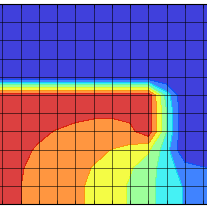
Details of implementing plasma simulations with the Particle In Cell Method in cylindrical coordinates. We develop a simulation of a simplistic ion gun. (Jun 15 2015)
Two Stream Instability Javascript Simulation
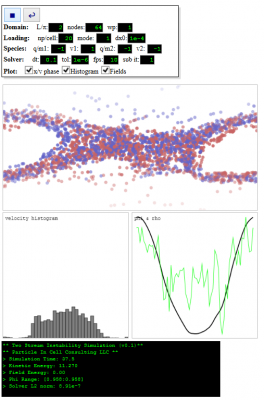
Particle In Cell (PIC) plasma simulation of two-stream instability implemented in Javascript and running in your browser. Two cold beams interact with each other until streaming is destroyed and particles become trapped in phase space vortices. (Apr 29 2015)
Modeling Diffuse Reflection (or How to Sample Cosine Distribution)
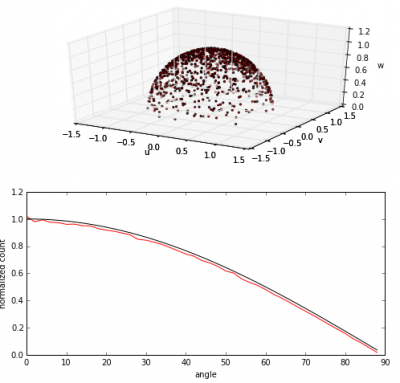
Molecules impacting surfaces reflect either diffusely or specularly, Since diffuse reflection is more common, it is important to model it correctly. In this article we discuss how to model diffuse reflection by sampling from Lambert's cosine law. (Apr 2 2015)
Sputter Calculator (alpha version)
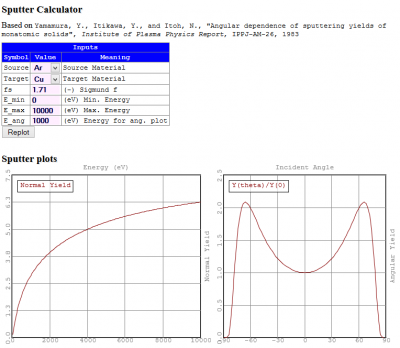
Online calculator and plotting program for normal and angular sputter yields using the models of Yamamura and Matsunami. (Mar 11 2015)